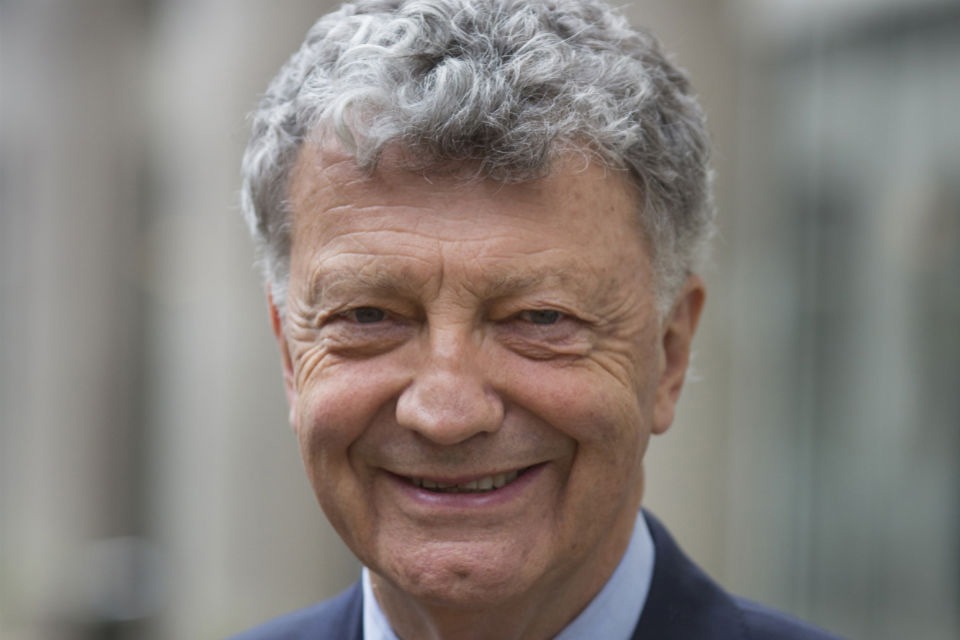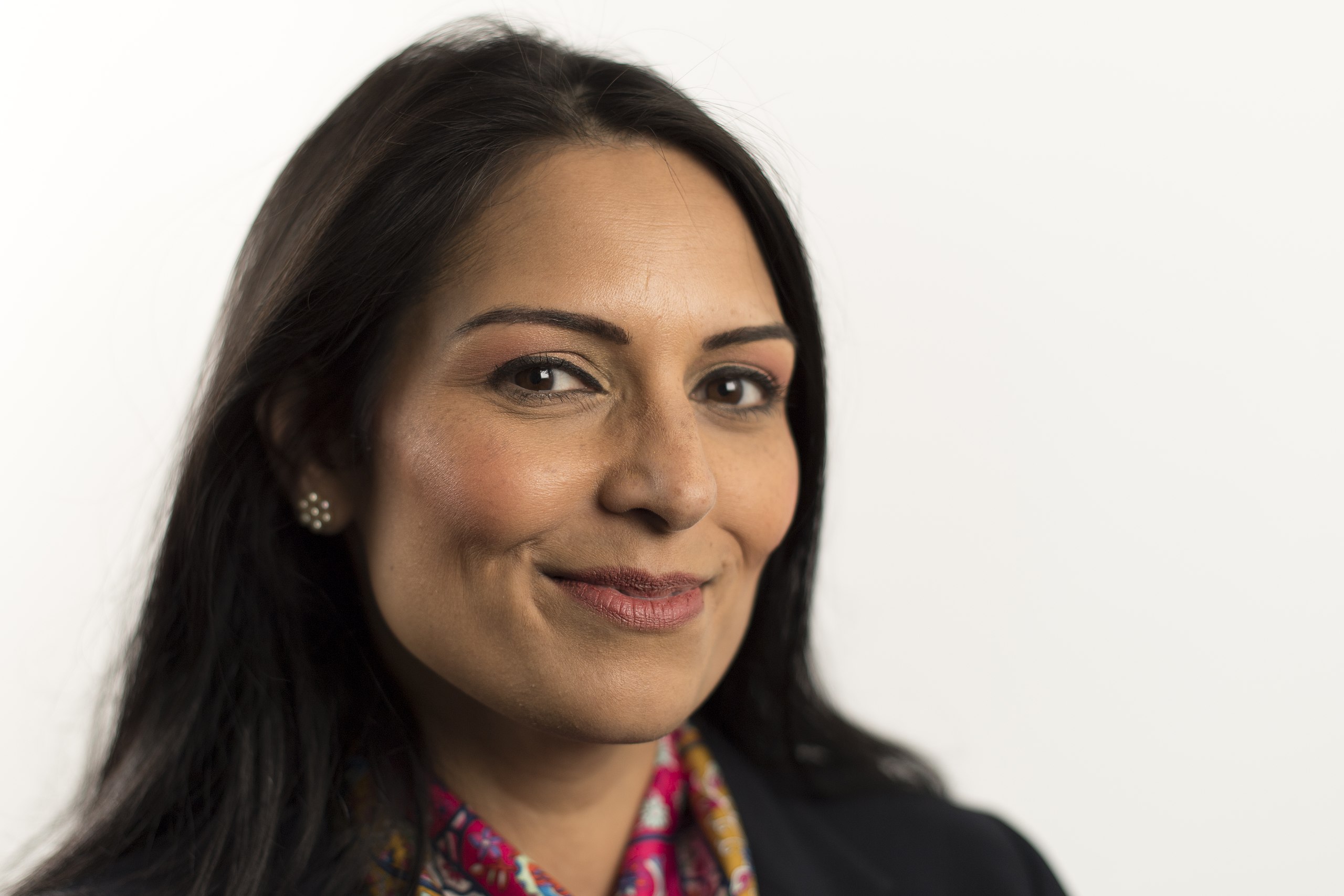The Henry Jackson Society (HJS), a London-based neoconservative pressure group, received £83,452.32 from the UK Home Office in four payments during 2015-2017 to produce a report on UK connections to Islamist terrorism.
The HJS has donated more than £12,000 to mainly Conservative MPs since 2013. Priti Patel, now the home secretary, was given £2,500 by the HJS in 2013 to cover a visit to Washington DC, while Michael Gove, the current Cabinet Office minister, was given £2,764 in 2016 for a visit to New York. Gove is closely involved with the HJS and served as one of its directors.
The HJS is a registered charity under British law, but has always refused to disclose its funders.
Declassified can also reveal that in 2018, the HJS had a staffer working in the office of then home secretary, Sajid Javid.
The Home Office spent nearly a year blocking the release of the new information, which comes from a freedom of information request, because of exemptions related to “safeguarding national security”.
The episode raises questions about the government’s possible misapplication of the Freedom of Information Act to protect itself from embarrassing disclosures.
Sam Armstrong, a spokesperson for the HJS, told Declassified: “We’re proud the British government recognised the value and integrity of our research and were generous enough to make a contribution towards creating the UK’s most in-depth and comprehensive study of Islamist Terrorism, which continues to be the gold standard in the field today.”
The HJS did not respond to a question about why the contract between the Home Office and the pressure group had not been publicised at the time.
The four invoices paid by the Home Office to the Henry Jackson Society from March 2015 to March 2017 totalling £83,452.32.
Home Office funding
The first Home Office payment to the HJS, of £12,517.85 in May 2015, was invoiced when Theresa May was the home secretary and the following three payments of £70,934 were made when the home secretary was Amber Rudd.
Rudd had sat on the HJS’s “political council” from at least September 2013, serving in that position while being a member of David Cameron’s cabinet as minister for climate change.
The HJS has deleted reference to its political council from its website, but according to archived web pages, Rudd left the body around the time she became home secretary in July 2016.
Declassified has not been able to verify whether Rudd left because she would soon be approving payments to the HJS as head of the Home Office. It appears the HJS took down the page referencing its political associates soon after Rudd was appointed as home secretary. Rudd did not respond to Declassified’s questions about the HJS contract.
The last web impression Declassified could access, from December 2016, noted that two cabinet members were then on the HJS’s political council: Nick Boles, then minister for skills, and Dominic Raab, then minister for justice and now foreign secretary. It is not known what membership of this council involves or if Raab is still a member.
HJS funding MPs
The HJS, despite being a charity, has provided benefits worth £10,798 to eight Conservative MPs since 2013, according to a Declassified analysis of parliamentary filings. It has also funded at least two other MPs: one Labour and one from the Democratic Unionist Party in Northern Ireland.
The current home secretary, Priti Patel, received £2,500 from the HJS in 2013, three years after she first became an MP. The group paid for her trip to Washington DC to be a “delegate” at a forum organised by Israel lobby group AIPAC, as well as a HJS “programme” in the US Congress.
Patel was on the group’s political council in June 2013, according to the earliest archived page left by its website, and became a minister in July 2014. She left the political council at some point in 2016.
Another cabinet minister with extensive links to the HJS is Michael Gove, who became a director of the group in January 2017 when he was a backbench MP. Gove resigned in June of 2017, 11 days after he became environment secretary under prime minister Theresa May.
In March 2016, the HJS paid £2,764 for Gove and his family to visit New York to receive an award at the anniversary of the Algemeiner Journal – a right-wing pro-Israel publication – and “attend events organised by the Henry Jackson Society”. Another trip, this time to Washington DC in March 2017, when Gove was still a HJS director, was co-funded by AIPAC and the HJS.
The HJS’s current communications director, Sam Armstrong, was previously a political campaigner for the Conservative Party and then chief of staff to Conservative MP Craig Mackinlay.
Lobbying
The HJS’s lobbying has focused on holding events in parliament and the group has put on breakfasts, lunches or dinners through at least 19 different MPs. It is not known how much the HJS has spent on lobbying, but it is clearly well-connected in parliament.
In January 2015, for example, five months before the Home Office made its first payment to the HJS, Conservative MP Damian Collins hosted a lunch for the HJS in parliament. Collins was then a director of the HJS – serving in that role from December 2010 to January 2017 – when he was replaced by Michael Gove.
Declassified can reveal that four months after the Home Office made its first payment to the HJS account, John Hayes, then the minister for security, met with the HJS which he said was an “opportunity for HJS to explain their work relating to the minister’s portfolio”. There is no record that the meeting discussed Home Office funding of the HJS.
Rudd’s successor as home secretary, Sajid Javid, was never on the HJS’s political council but, according to the May 2018 parliamentary register, Javid then had a HJS staffer working as a research assistant in his office.
The assistant, Sophie Bolsover, had become the HJS’s parliamentary manager in March 2016. She left the home secretary’s office in August 2019 and became a special adviser to the government chief whip, Mark Spencer MP. The Home Office did not respond to Declassified’s question about whether the HJS had had other staffers working in the home secretary’s office.
The HJS did not respond to questions about which Home Office official the organisation negotiated the contract with or when the negotiations took place.
A Home Office spokesperson told Declassified: “We work with a wide range of organisations to understand the threats we face and to protect the public. Funding was agreed in 2014 for a third edition of a report by the Henry Jackson Society titled ‘Islamist Terrorism: The British Connections’. Given that the organisation had produced the previous two editions, they had the necessary expertise to update the report effectively.”
Charitable status
The Henry Jackson Society’s status as a registered charity has been seen as controversial. Its director Alan Mendoza stood as a Conservative Party candidate and is currently a parliamentary staffer for Conservative life peer Baroness Eaton.
The HJS was revealed by the Sunday Times in January 2017 as receiving £10,000 a month from the Japanese embassy in London “to wage a propaganda campaign against China” in the British media.
The following month, the Charity Commission was said to be “looking into” the HJS, but the organisation’s charity status was not impacted by the disclosure of Japanese funding.
At the time, the Commission was chaired by William Shawcross who had been a director of the HJS from 2011 to 2012. Shawcross resigned as a director in September 2012, the month after he was appointed chair of the Commission where he stayed until 2018.
Shawcross had been appointed to the Commission in August 2012 by Francis Maude, then minister for the Cabinet Office. According to ministerial records, Maude had dinner with unspecified individuals from the HJS six months earlier, on 20 February 2012, while Shawcross was still a director of the organisation.
In February 2012, Maude also launched an Inter-Parliamentary Strategic Dialogue on Cyber Security, whose third meeting was “hosted” by the HJS in Amsterdam in 2013, according to documents from a German parliamentary inquiry into the surveillance activities of its foreign intelligence agency BND. The HJS is listed as a “supporter” of the new organisation alongside the UK’s All-Party Parliamentary Group on Homeland Security.
The document – marked “participants only (German Interior Ministry)” – notes: “The third meeting is aimed at senior official level only and will be kept to UK, German, Dutch, lsraeli, United States, Canadian and French participation with the addition of the NATO Centre of Excellence in Estonia.”
The nature of the HJS’s involvement in the event is not known.
The HJS has reported income of £1.4-million, nearly all of it donations, but the group does not disclose its funders. In 2014, the HJS pulled funding for two parliamentary groups which focused on domestic and international security after refusing to reveal its donors to parliament’s standards watchdog. In 2018, Mendoza received a wage of £135,000.

Information controversy
The Home Office blocked the release of the information about its payments to the HJS for nearly a year. The initial information request was made in May 2019, but the Home Office rejected it, stating that it could not be “confirmed nor denied whether the requested information [about its funding of the HJS] was held”.
It stated that the request was being considered “under the exemption in section 24(1) of the Act, which relates to National Security”.
The Home Office explained: “The Henry Jackson Society is known for its work on the analysis of extremism and terrorism. Confirming or denying whether the information is held or not, risks prejudicing the prevention and detection of crime.”
It added: “If we were to confirm or deny whether information from the Henry Jackson Society (or any named third party) informed the work of the Home Office, this would provide extremist actors with the opportunity to subvert the work of that third party and prevent the detection of crime.”
An internal review upheld the original decision. Then, in April 2020, the Home Office wrote that it had “now decided, after further review, to release the requested information in full”.
Despite spending more than £80,000 of taxpayers money on the HJS report – eventually titled, “Islamist Terrorism: Analysis of Offences and Attacks in the UK (1998-2015)” – the Home Office said in response to the information request that it “does not hold” the report, which has a cover price of £70. It pointed enquiries instead to the HJS website where it could be purchased, although the link to do so is broken.
The Home Office rejects the initial freedom of information request for information on its payments to the Henry Jackson Society on national security grounds. After nearly a year, it reversed its decision.
HJS connections
The HJS promotes itself as “working across borders and party lines to combat extremism, advance democracy and real human rights – and make a stand in an increasingly uncertain world”.
The organisation has access to high-level former intelligence officials. One individual to sign up to the HJS’s “Statement of Principles” – which promote Western military power and give “two cheers for capitalism” – is Richard Dearlove, the former head of MI6.
One of HJS’s “international patrons” is James Woolsey, the director of the Central Intelligence Agency from 1993-95. Gisela Stuart, the former Labour MP and a key figure within the HJS, was a member of the Intelligence and Security Committee of Parliament from 2015-17.
The HJS also appears to have particular links to the Israeli government and organisations promoting Israeli policy. At least two HJS staffers have moved directly from the group to working for the Israeli Ministry of Foreign Affairs.
Michael Gove is closely associated with Conservative Friends of Israel (CFI) and has spoken at its annual business lunch, describing Israel as a “light to the world”. Priti Patel is a former vice-chair of CFI who was sacked from government in 2017 for off-radar meetings with Israeli politicians which were arranged by CFI’s honorary president, Lord Polak.
Another signatory of the HJS principles is the Conservative MP Stephen Crabb who is also the current parliamentary chair of CFI. Other British signatories include Conservative MP Robert Halfon, the former political director of CFI, and Lord Bew, chairman of the executive at the Anglo-Israel Association.
One of the HJS’s former directors, William Shawcross, is a founder member of the Friends of Israel Initiative. In June 2018, the HJS arranged a talk by the former prime minister of Israel, Ehud Olmert, at Portcullis House, the offices of British MPs.
Michael Gove, Amber Rudd and Theresa May did not respond to requests for comment.
This article is co-published with openDemocracy.



